Dar Al Sulh (Domain of Conciliation)
May 1- 7, 2013
Traffic, Dubai
In collaboration with Regine Basha and Dr. Ella Habiba Shohat
Dar Al Sulh, or Domain of Conciliation, is a territory where an agreement between Muslims and non-Muslims has been made and provides freedom of religion, autonomy, and protection. It is this agreement that applied to Jews in Iraq, and elsewhere in the Middle East.
Dar Al Sulh was a restaurant that operated from May 1-7, 2013 in Dubai, and was the first in the Arab World to serve the cuisine of Iraqi Jews since their exodus, which began in the 1940s as a result of riots and reprisals leading up to and after the establishment of the state of Israel. Today, it is believed less than ten members of the once 150,000-strong community remain in the entire country.
The surfaces upon which the dinners were served are from Jewish families who left Iraq in the 1940s and 1950s. Some are everyday dishes. Others are more precious, like the tray pictured here, which was used to serve traditional recipes in the Great Synagogue of Baghdad. Nearly all of the serving ware are small and made of metal, compact enough to be placed under clothing and smuggled—many Jews had to leave Iraq without any of their belongings— and sturdy enough to survive the journey without shattering.
The meals were thematically organized into seven loose themes to reflect the properties of each meal, and to instigate the topic of each dinner discussion. They are light and heavy, augmented by the five basic tastes, four of which were once mistakenly believed to be detected by specific areas of the tongue.
Bitter
Sour
Salty
Sweet
Umami
Dr. Ella Habiba Shohat, herself an Iraqi Jew, is Professor of Cultural Studies at New York University and affiliated with NYU-Abu Dhabi. Since the 1980s she has written extensively on Orientalism, postcoloniality, and diasporic cultures, while also developing critical approaches to the study of Arab-Jews, focusing especially on Iraq and its diaspora. She served as interlocutor and co-host at Dar Al Sulh.
The restaurant also hosted Tuning Baghdad, which provided a soundtrack for the dining experience. A project initiated by independent curator Regine Basha—our other co-host and interlocutor at Dar Al Sulh—Tuning Baghdad brings together a growing archive of rare video footage, audio clips, and historical information on Iraqi-Jewish musicians and the music scene that was displaced from Baghdad in the late 1940s and early 1950s, including Basha’s father, an avid oud player. The last generation of Iraqi-Jewish musicians who performed in Baghdad are now in their 70s and 80s; they represent an era when an unusually large number of Iraqi Jews were composing and performing Arabic music. For decades these musicians were the teachers and beloved performers of Iraq’s traditional maqams and modern compositions on the country’s National Broadcast Station. Further information, including audio recordings and video, can be found at tuningbaghdad.net
A single photo adorned the walls of Dar Al Sulh: Palestinians protecting the Maghen Abraham Synagogue in Beirut during the Lebanese Civil War in 1975. The image serves as a surrogate for others that do not seem to have been documented, of the Muslims and Christians in Baghdad who protected their Jewish neighbors’ homes during the Farhud, the anti-Jewish riots and pogrom that erupted in the Iraqi capital in June, 1941.
Two Iraqi flags hung inside the restaurant. The first one was adopted for six months in 1958, and was identical to the Palestinian flag. The second was donated by an Iraqi Jewish man who wished to remain anonymous and was a communist back in the 1960s and sent this message: This flag comes from the personal collection of an Iraqi Jew who was a member of the communist party in the 1940s, and left Iraq in 1961. “I was an admirer of Yusuf Salman Yusuf, aka Comrade Fahd. General Qassim was as close an ally as we ever had in the Iraqi leadership. Please fly his flag in Dar Al Sulh.
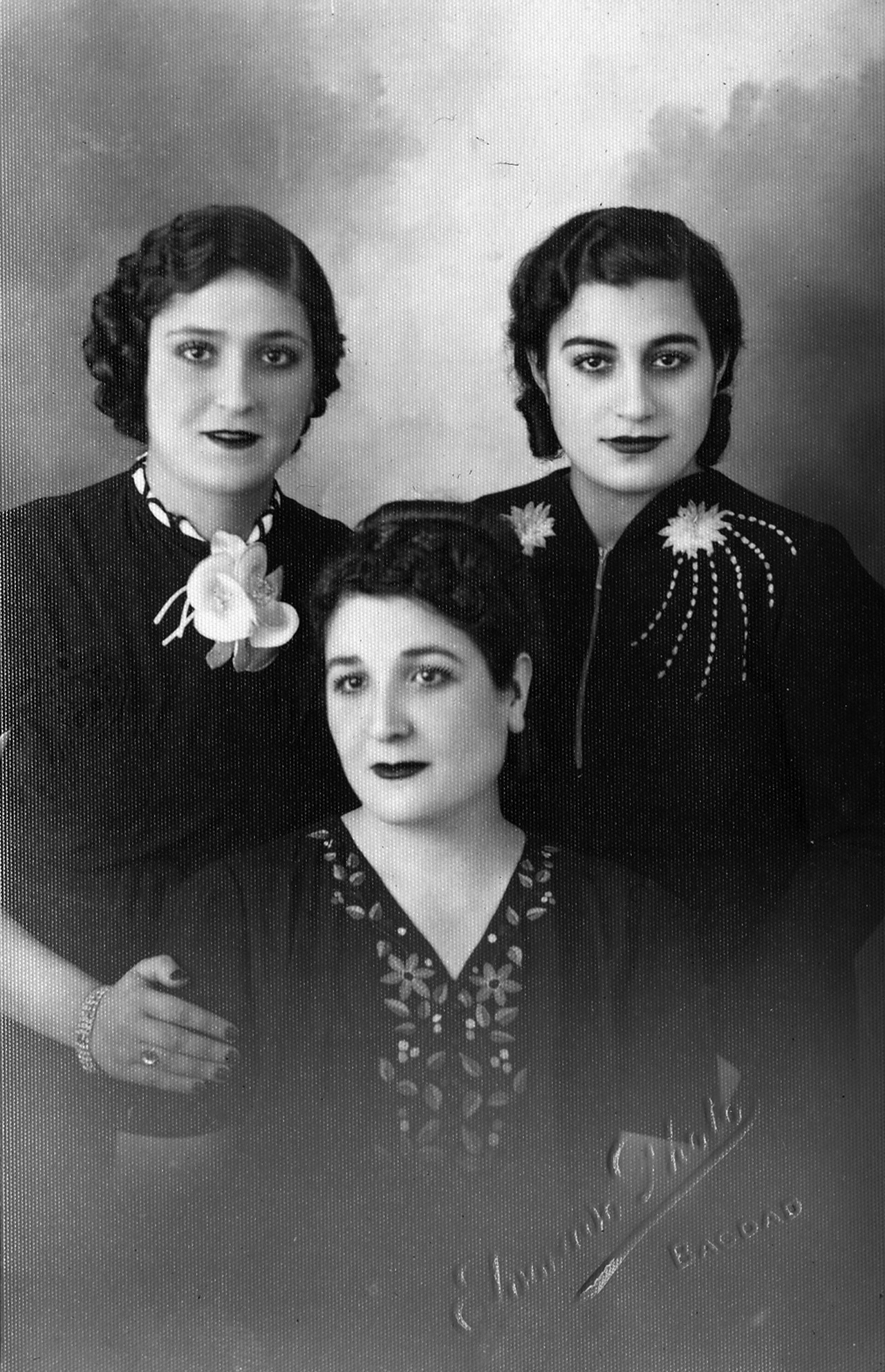
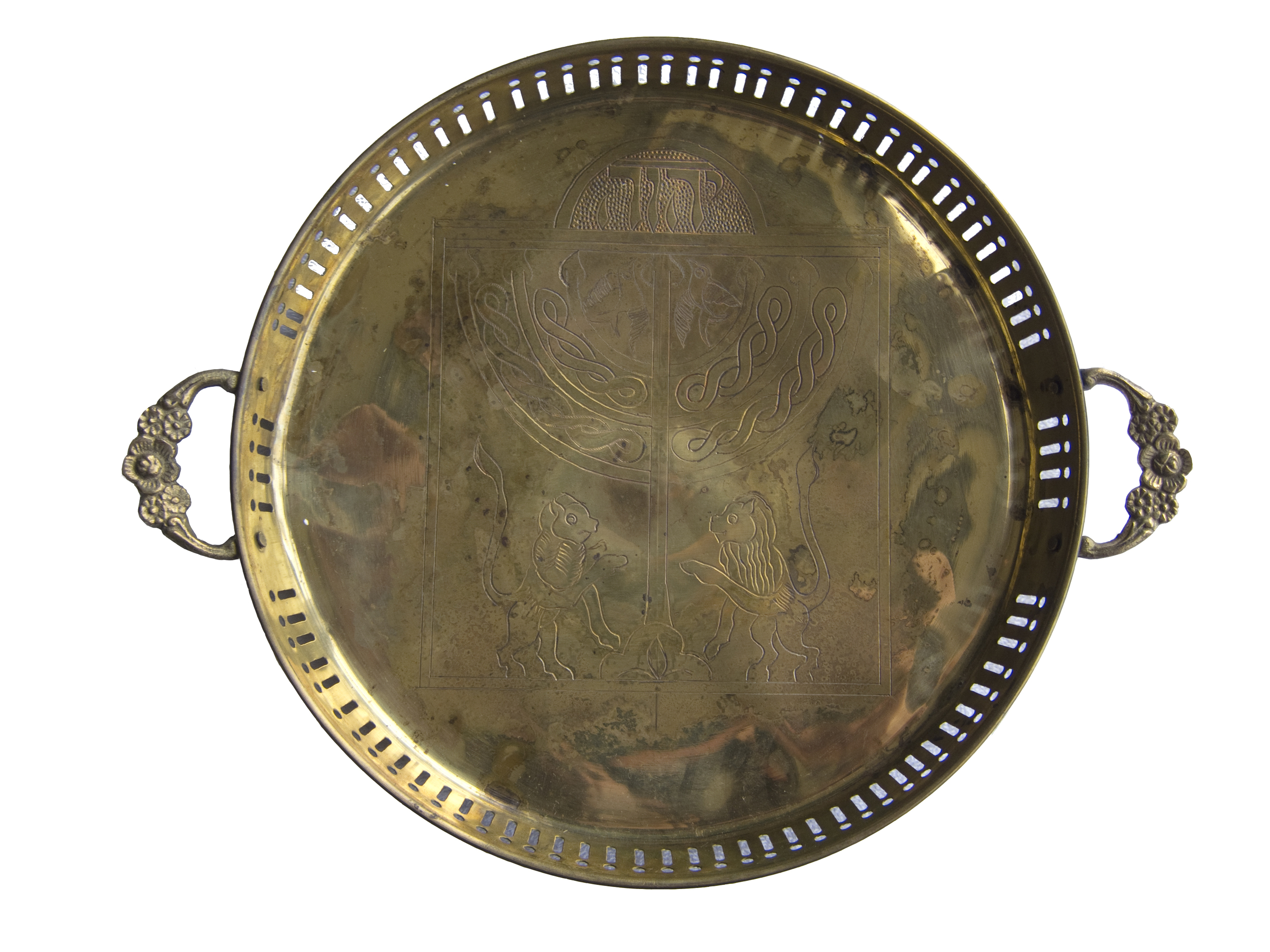

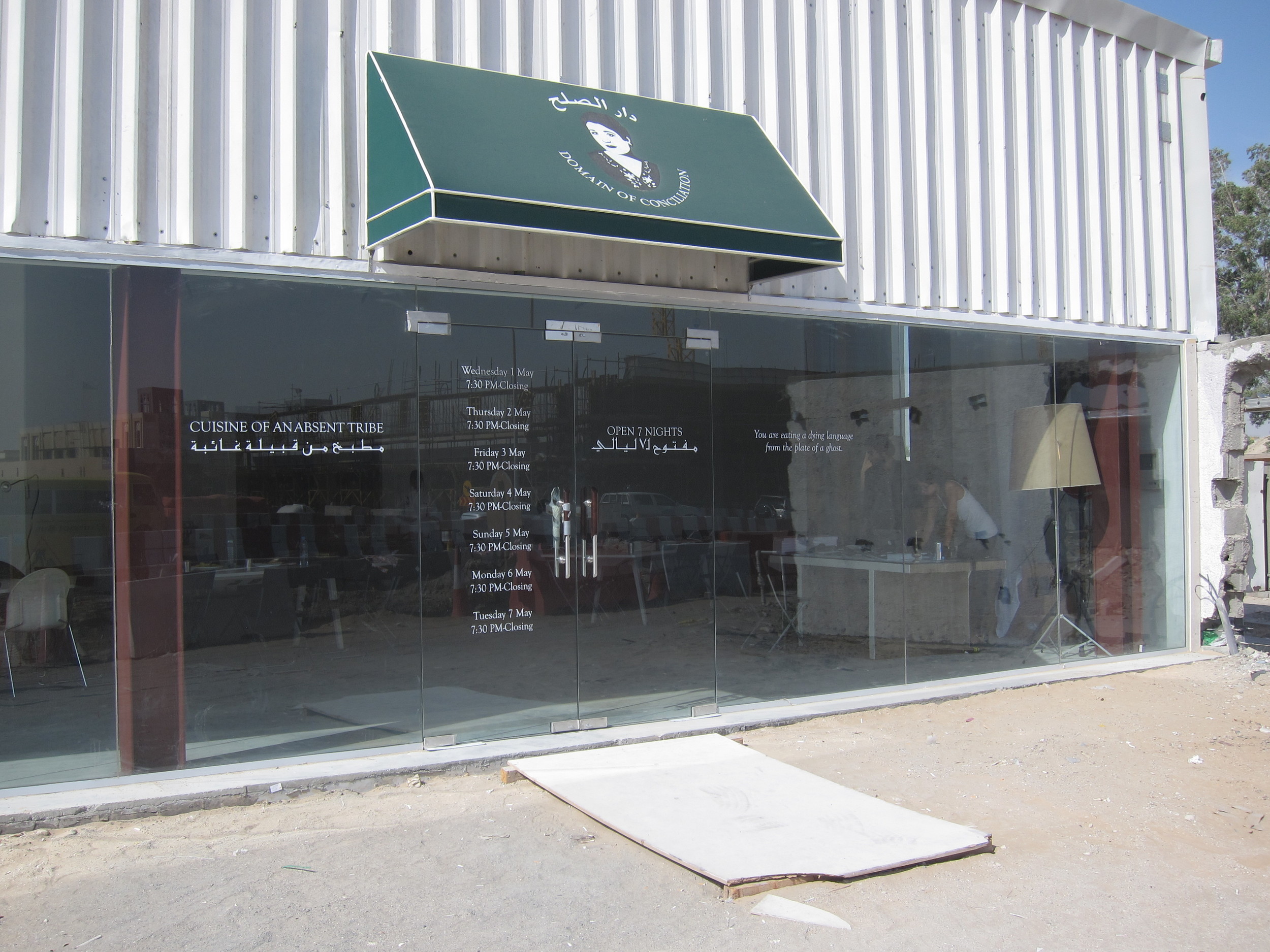
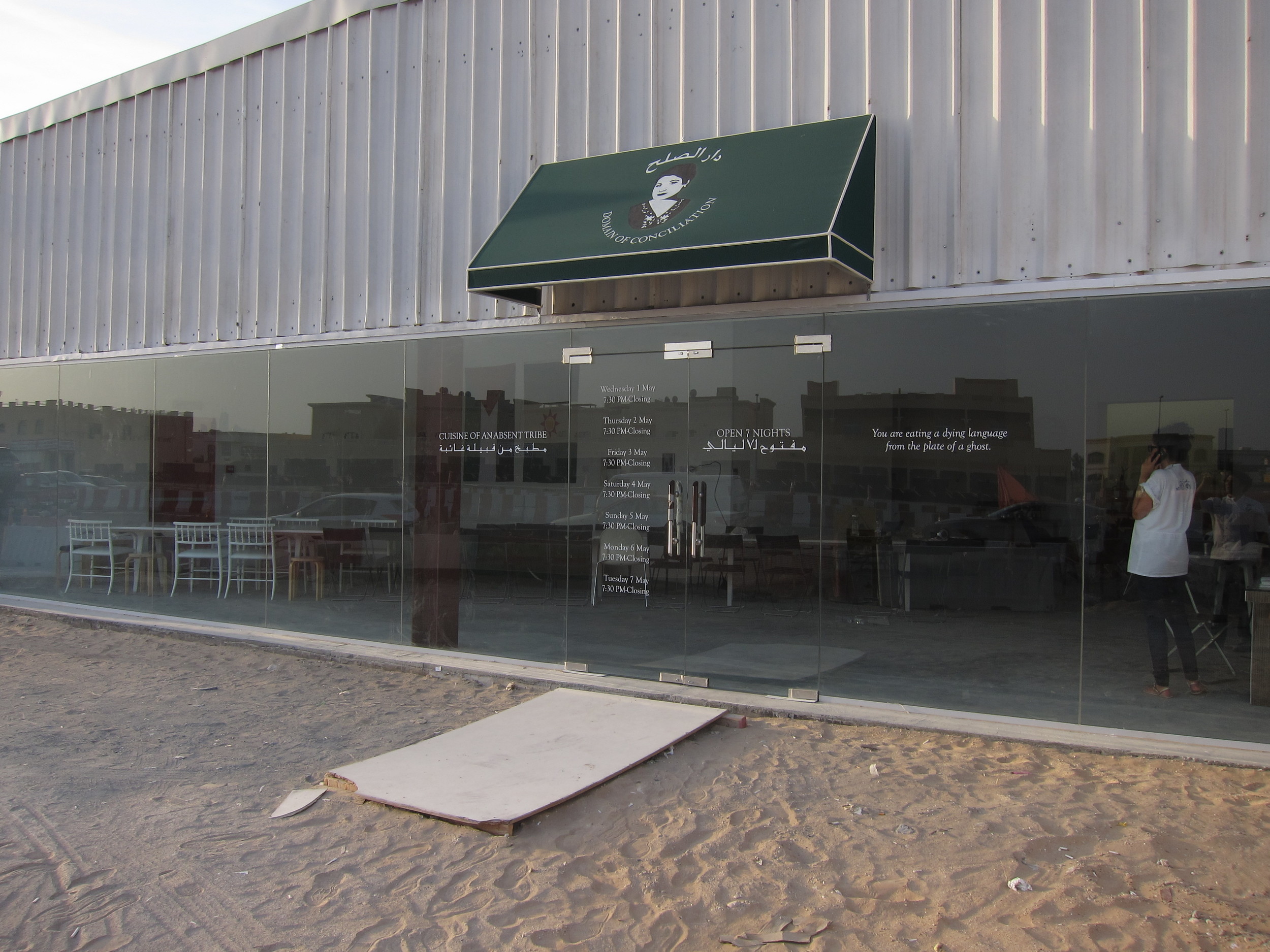
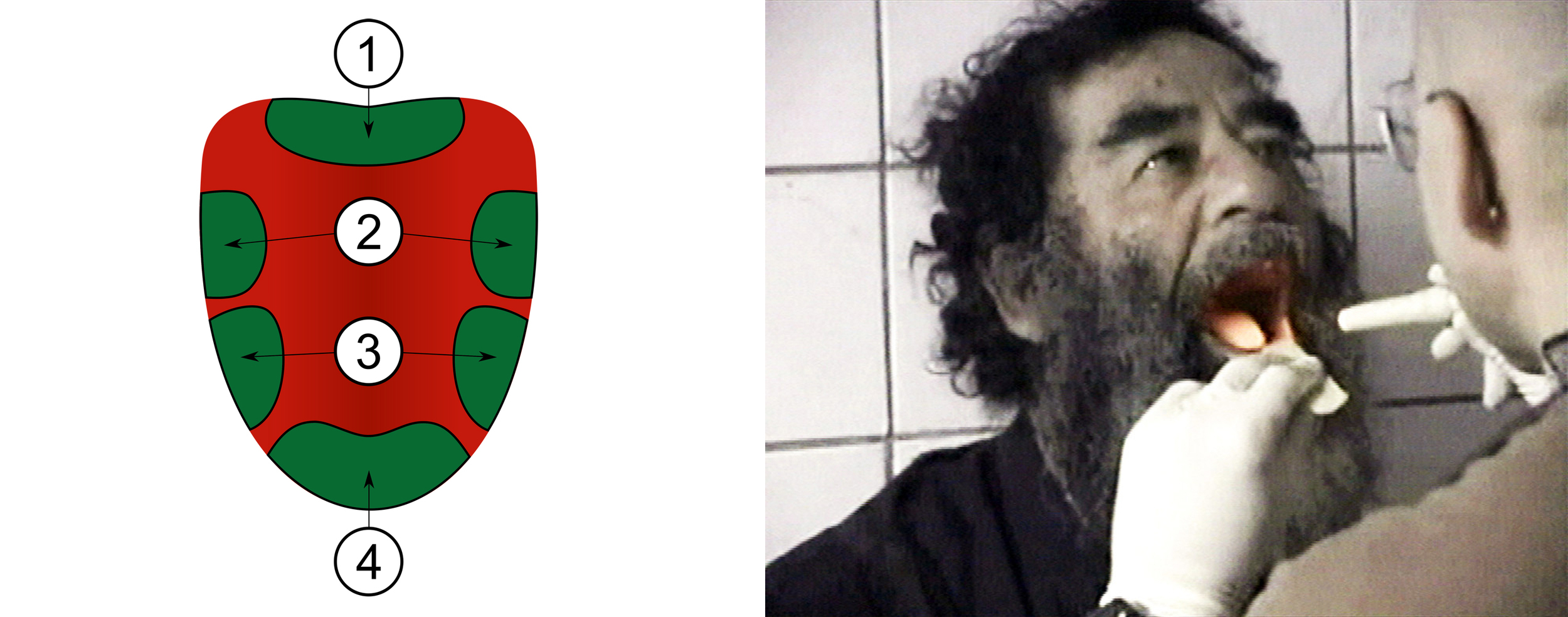
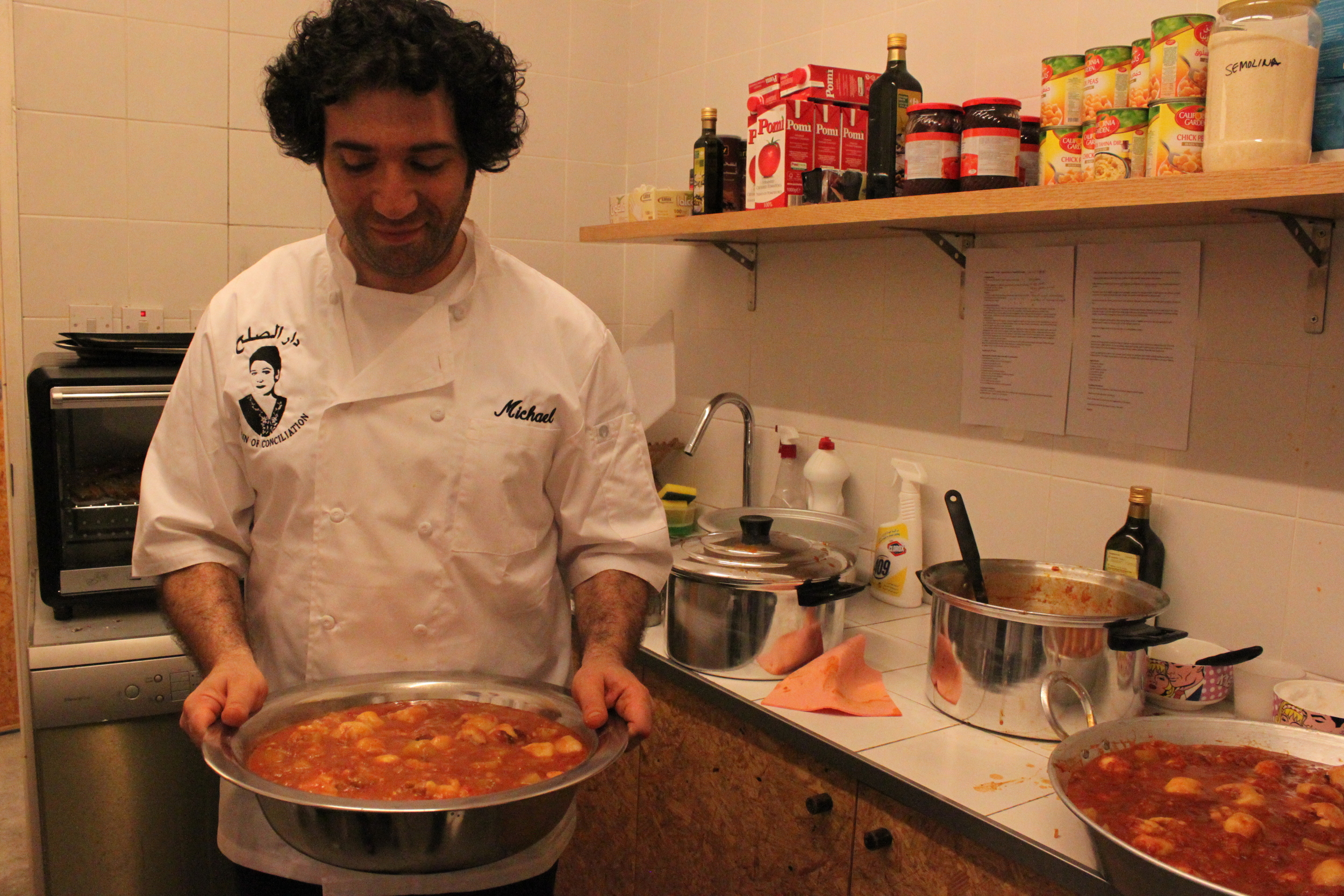
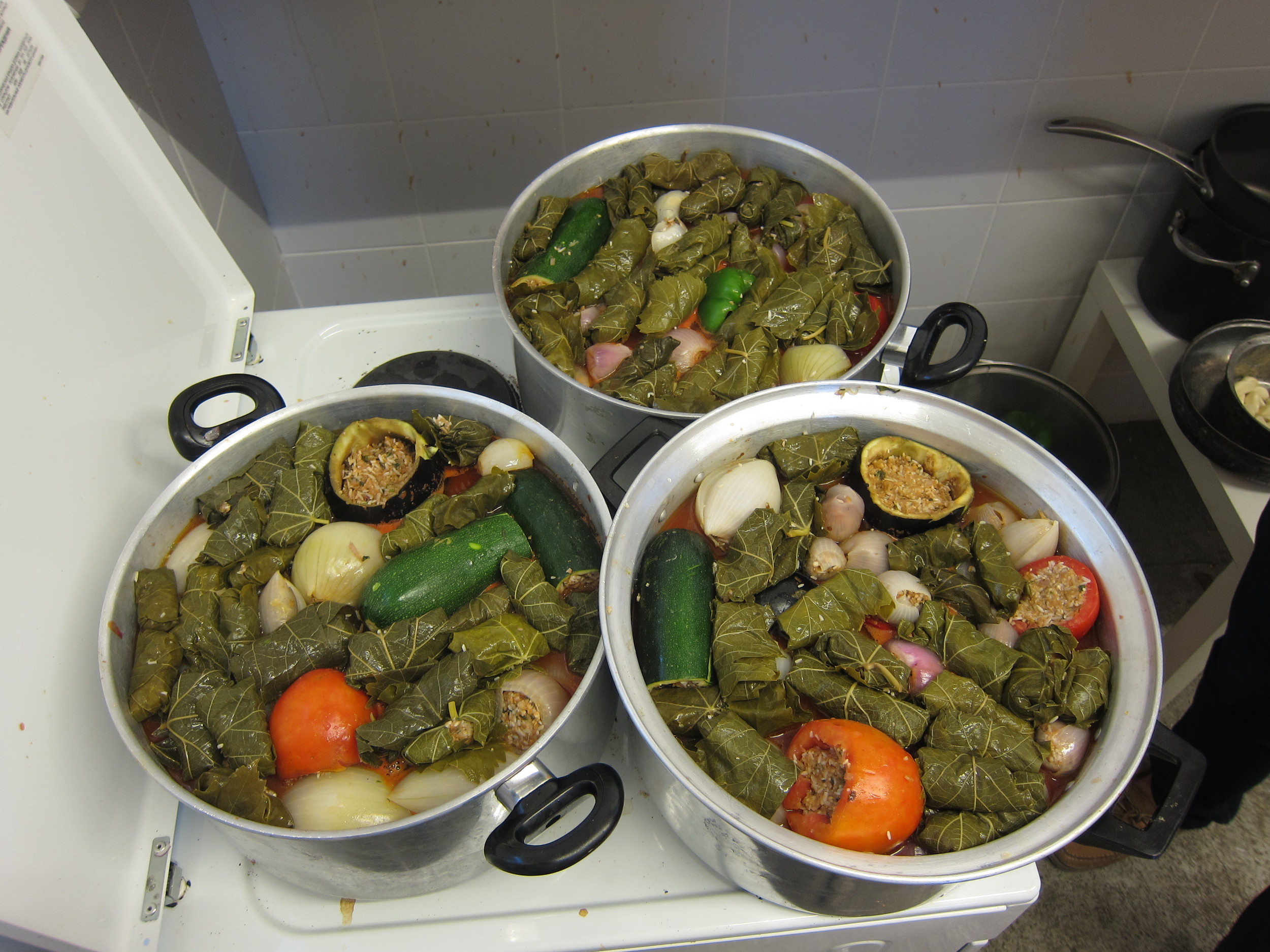
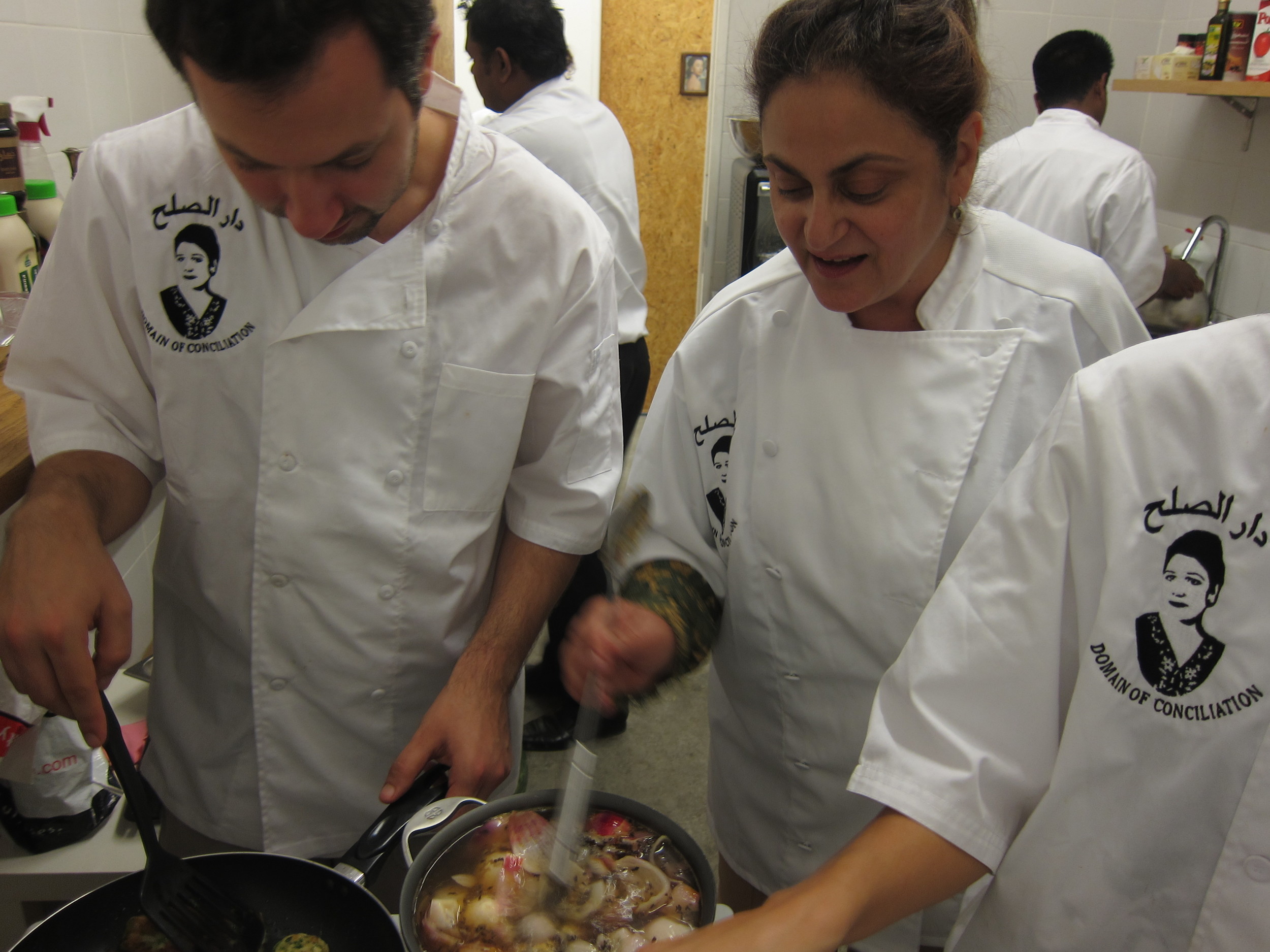
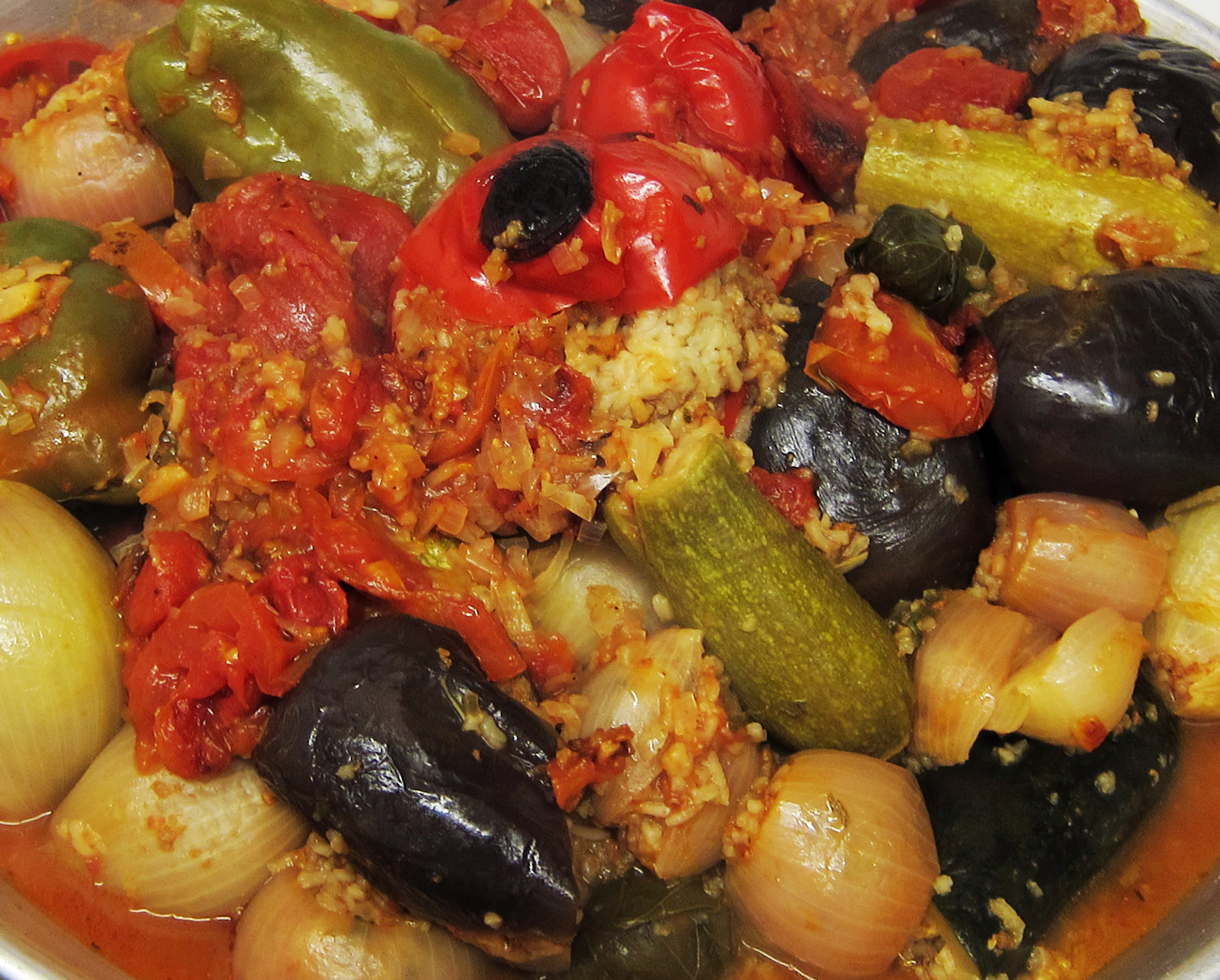
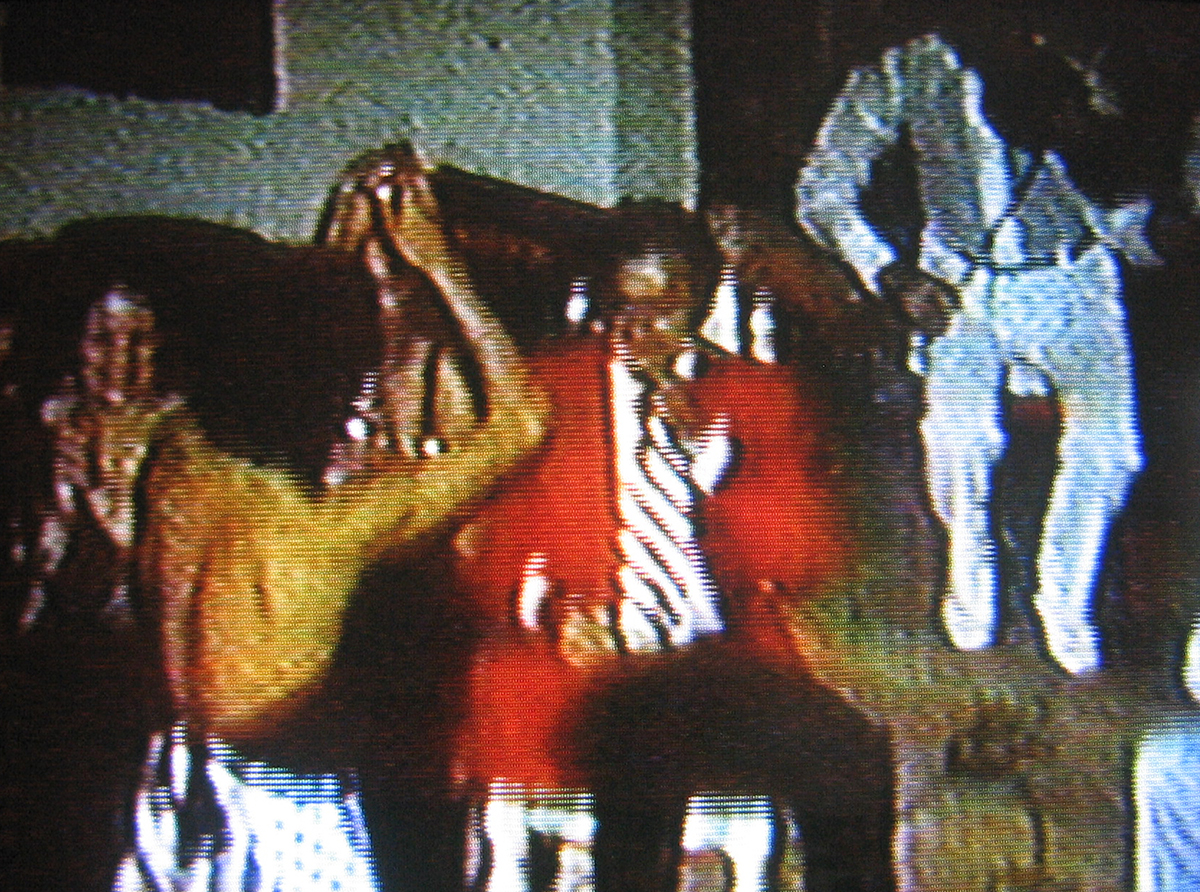
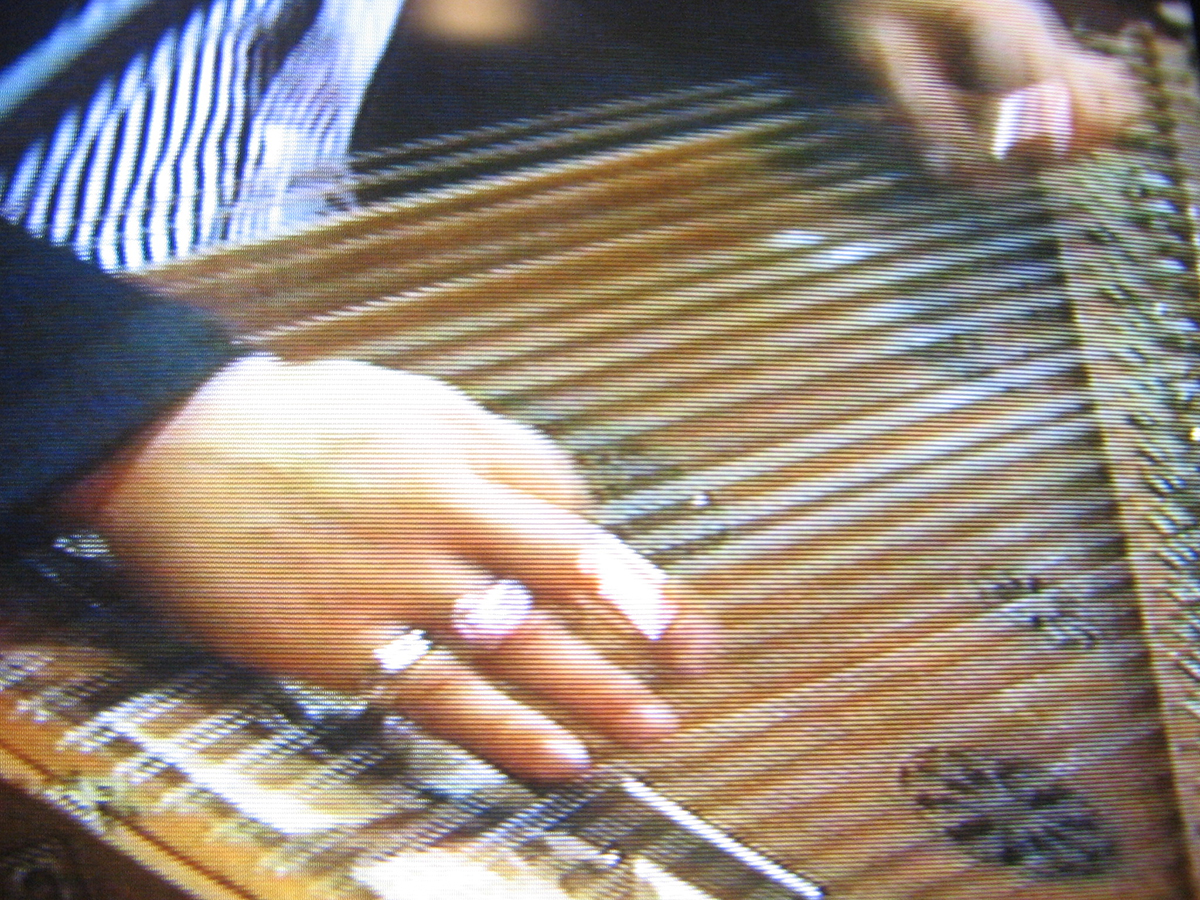
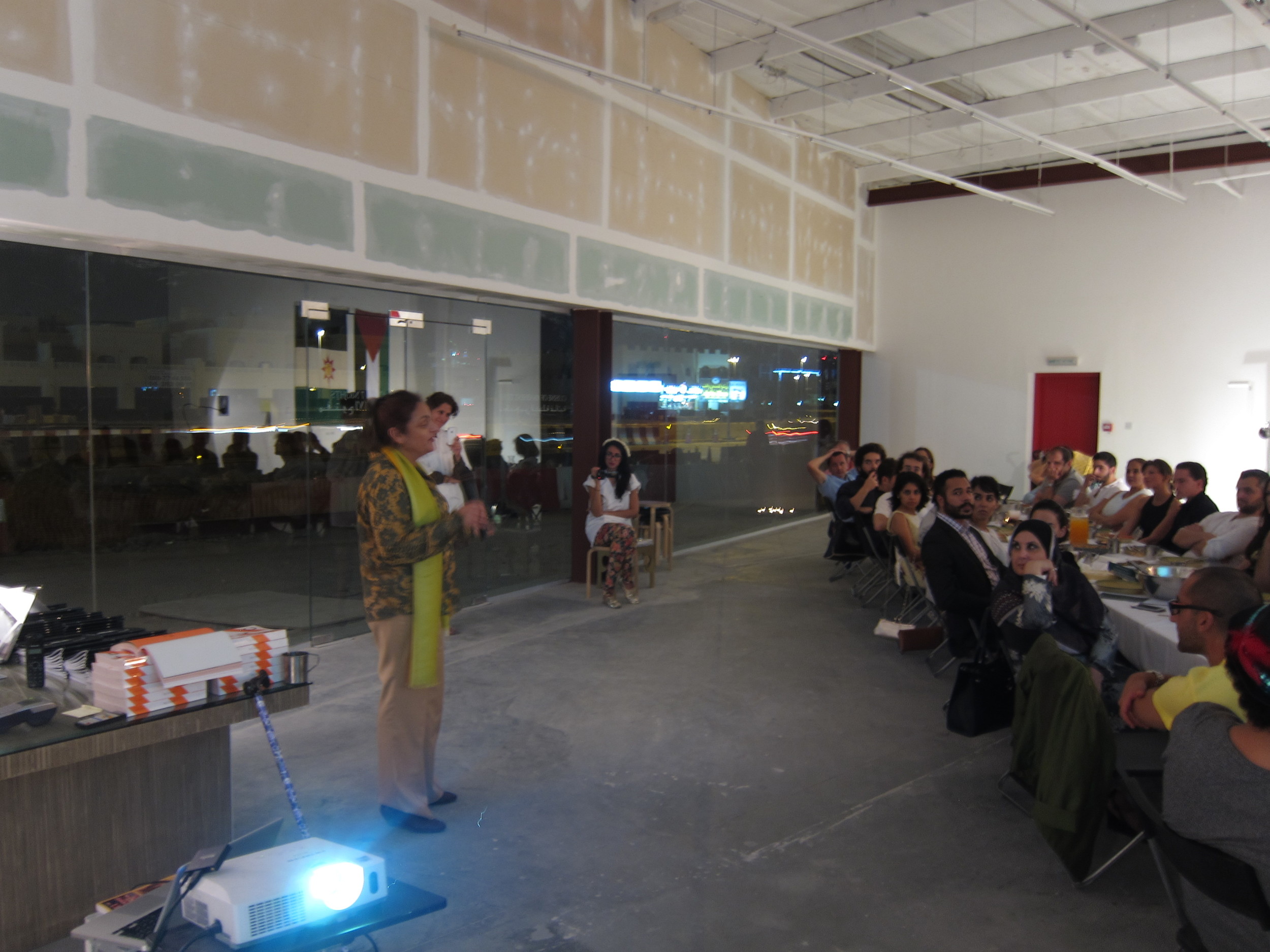
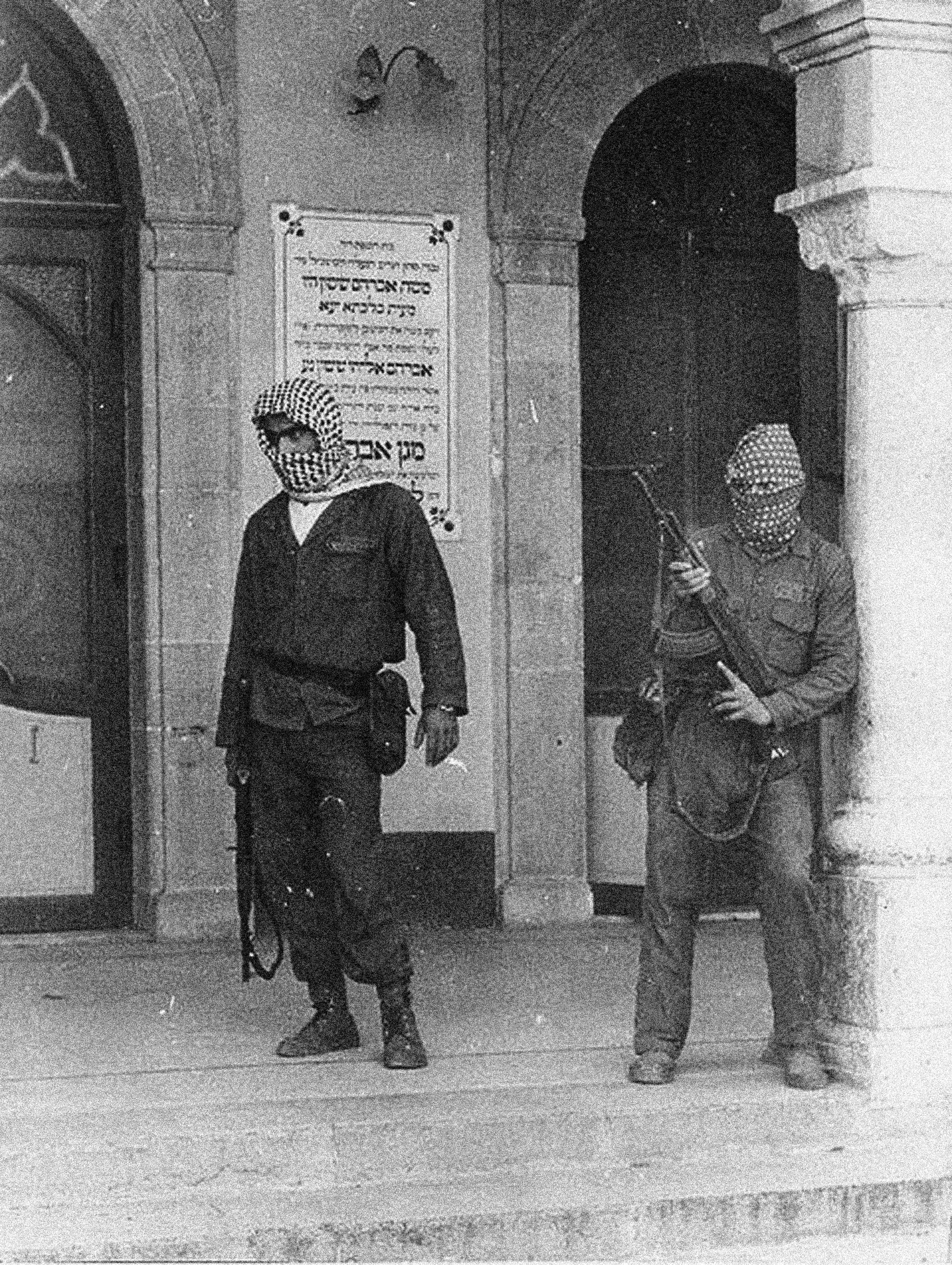
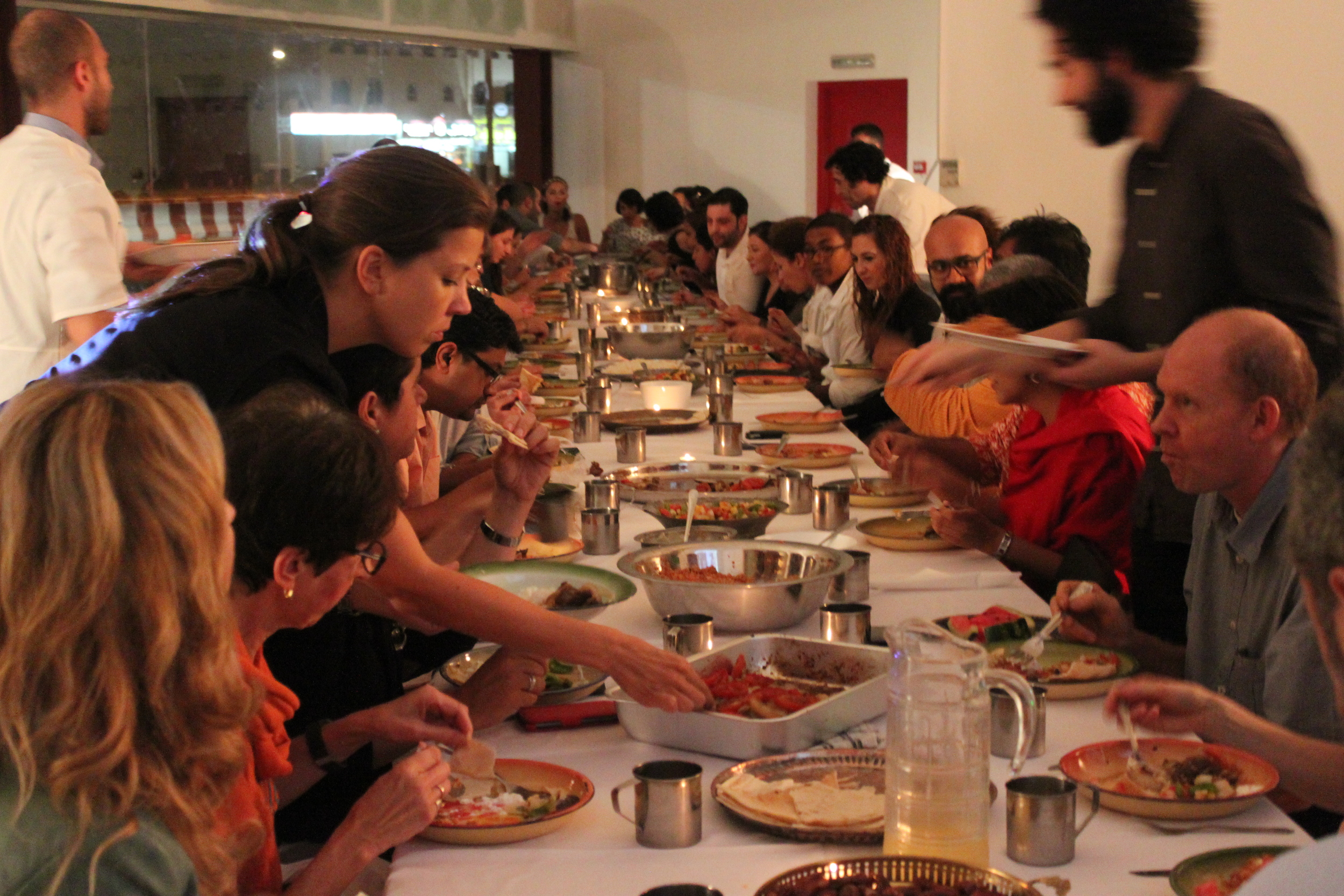
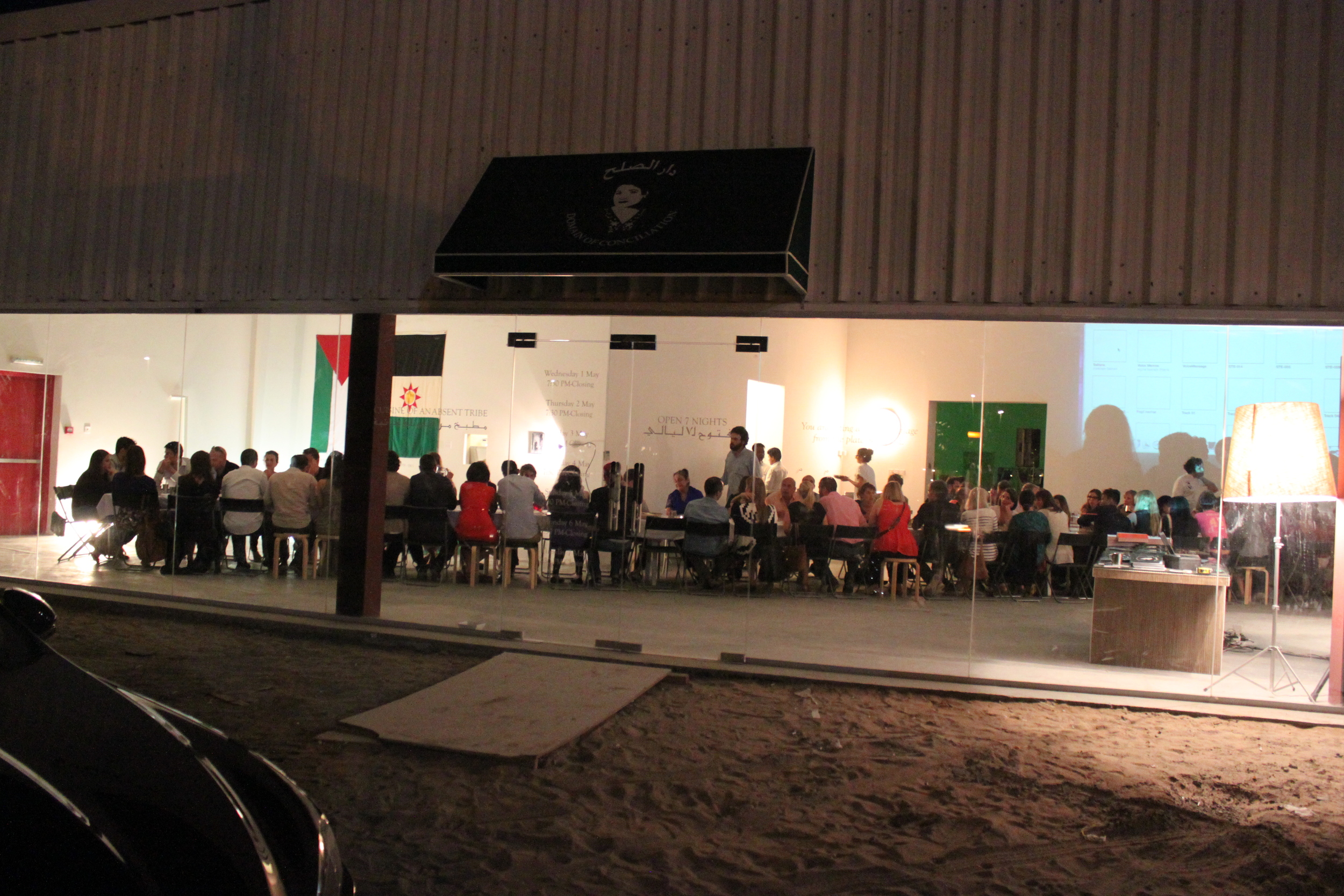
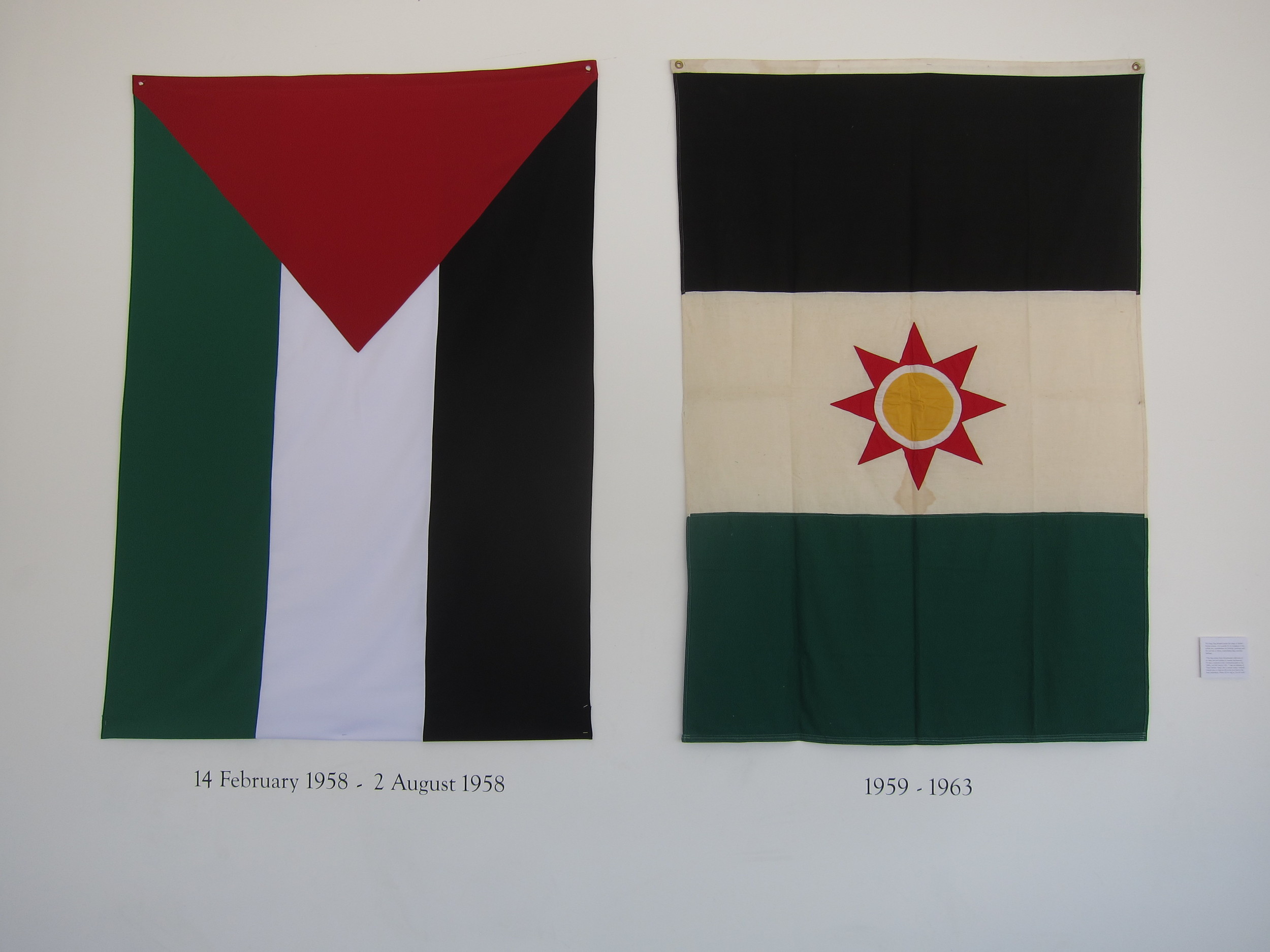
Jews were once Arabs, too. Their exodus from Arab lands is one that has been propagandized and mythologized by Israel, by the flawed narrative of Zionism, and by other entities in order to bolster specific cultural and political positions. Dar Al Sulh seeks to be a time machine, to reactivate a space when there was harmony, when Jews had not yet abandoned their Arab selves, before Jewish populations in the Arab world were assumed to be complicit with Zionism. The notion of conciliation is the central philosophy of Dar Al Sulh, meant to be reflected in the food and the conversations spoken around it.